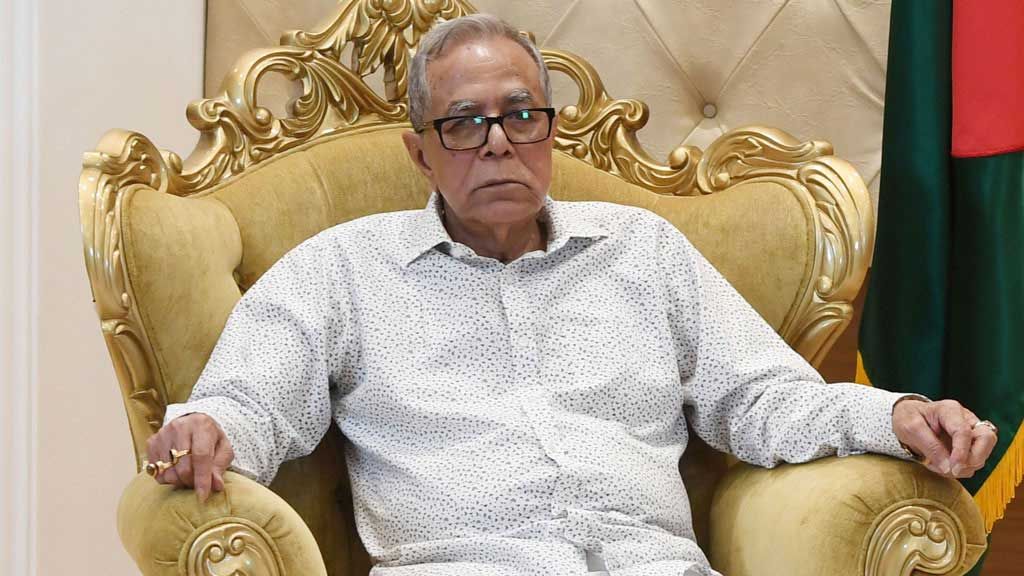Bangladesh President Abdul Hamid’s Thailand Visit Raises Eyebrows
In a surprising turn of events, Bangladesh President Abdul Hamid has found himself at the center of a political storm following reports of his sudden departure to Thailand. The former head of state’s unexpected move has triggered widespread speculation, with critics questioning the motives behind his trip.
As the political landscape in Bangladesh remains tense, Abdul Hamid’s Thailand visit has added fuel to existing controversies, especially concerning the country’s interim government and the ongoing legal battles involving Nobel laureate Muhammad Yunus.
Why Did Abdul Hamid Flee to Thailand?
Sources suggest that Bangladesh President Abdul Hamid left the country amid growing political pressure. While the exact reasons remain unclear, insiders claim his departure may be linked to the increasing scrutiny on former government officials.
Thailand, known for being a preferred destination for political exiles, has reportedly granted Abdul Hamid temporary shelter. However, neither the Bangladeshi nor the Thai government has issued an official statement regarding his stay.
Political Backlash and Public Reaction
The news of Abdul Hamid’s Thailand trip has sparked mixed reactions in Bangladesh. Supporters of the Awami League argue that his departure was a personal decision, while opposition leaders allege it reflects deeper instability within the ruling party.
Critics have also drawn parallels between Abdul Hamid’s situation and the legal troubles faced by Muhammad Yunus, who has been embroiled in multiple court cases. Some speculate that the former president’s exit could signal a broader crackdown on dissenting voices in Bangladesh.
Source: (DNA)
The Fall of the Awami League: A Party in Crisis
The Awami League, once the dominant political force in Bangladesh, has faced a series of setbacks. Following the ousting of Prime Minister Sheikh Hasina in August 2024, the interim government led by Nobel laureate Muhammad Yunus banned all activities of the party under the Anti-Terrorism Act.
The Election Commission subsequently suspended the party’s registration, barring it from participating in future elections.
These actions have been met with both domestic and international scrutiny, with critics arguing that such measures undermine democratic principles.
Legal Troubles: Murder Charges and Political Accountability
Hamid’s departure came amidst serious legal allegations. He is a co-accused in a murder case related to the government’s crackdown on protesters during the 2024 anti-quota demonstrations.
The case, filed at Kishoreganj Sadar police station, also implicates former Prime Minister Sheikh Hasina and other high-ranking officials. The allegations have intensified calls for accountability and justice.
Historical Context: Abdul Hamid’s Political Journey
Bangladesh President Abdul Hamid served as the country’s head of state from 2013 to 2023, playing a crucial role during a turbulent political era. His tenure saw significant economic growth but was also marked by allegations of authoritarianism and suppression of opposition.
Now, his sudden relocation to Thailand has reignited debates about political freedom and accountability in Bangladesh. Analysts suggest that his move could influence the country’s upcoming elections and reshape alliances within the ruling party.
International Implications
The Abdul Hamid Thailand saga has also drawn attention from global observers. Human rights organizations are closely monitoring the situation, concerned about the potential implications for democracy in Bangladesh.
If Bangladesh President Abdul Hamid seeks asylum or prolonged stay in Thailand, it could strain diplomatic relations between the two nations. Thailand has historically maintained a neutral stance in such matters, but this case may test its foreign policy.
What’s Next for Abdul Hamid?
As of now, Abdul Hamid’s future remains uncertain. Will he return to Bangladesh, or will he seek political asylum abroad? The answer could have far-reaching consequences for the country’s political stability.
For now, all eyes remain on Thailand, where the former Bangladesh President Abdul Hamid awaits his next move. One thing is clear—his departure has added another layer of complexity to Bangladesh’s already volatile political scene.
The Road Ahead: Challenges for Bangladesh’s Democracy
The departure of Abdul Hamid underscores the challenges facing Bangladesh’s democratic institutions. As the country grapples with political upheaval, legal battles, and public dissent, the path to stability remains uncertain.
The interim government’s actions, while aimed at restoring order, must balance the need for accountability with the preservation of democratic freedoms. The international community’s engagement and support will be crucial in guiding Bangladesh through this tumultuous period.
Read More About: BSF Soldier Handed Over to India by Pakistan Rangers
Conclusion
The unexpected Thailand trip of Bangladesh President Abdul Hamid has raised critical questions about governance, democracy, and freedom in Bangladesh. Whether this marks the beginning of a new political exodus or merely a temporary retreat, the repercussions will undoubtedly be felt across the nation.
